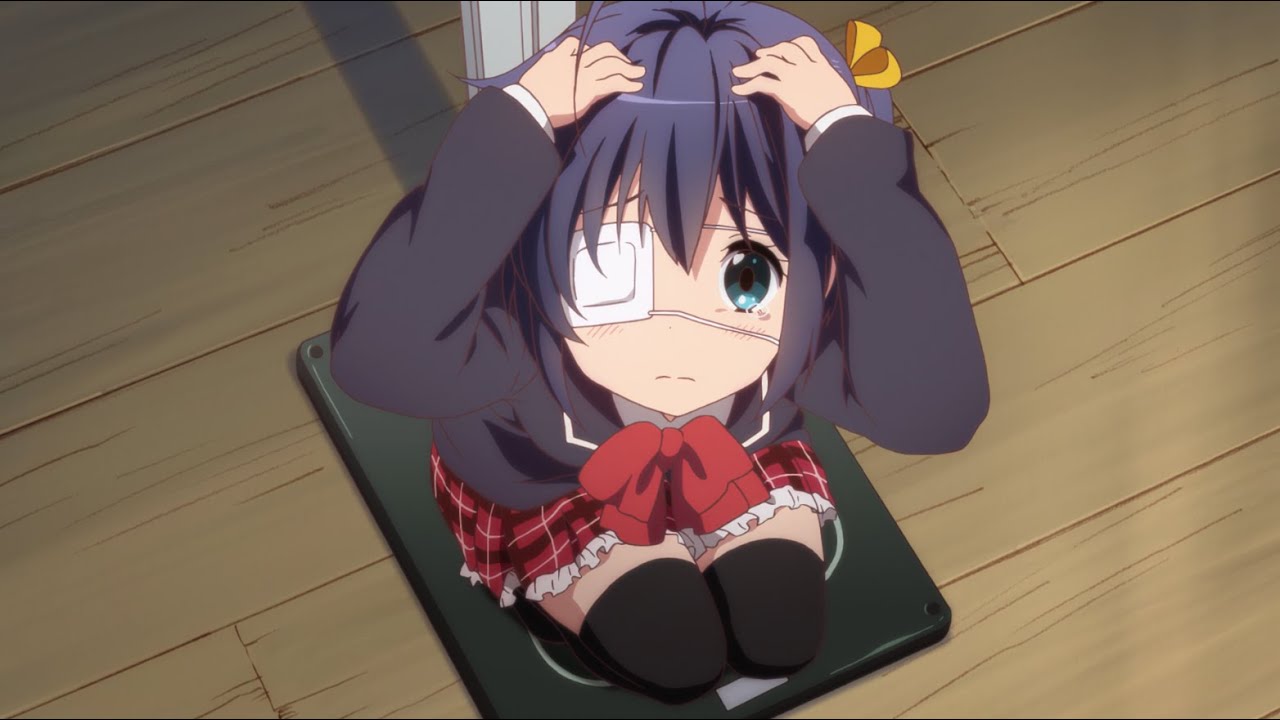Personal experiences with music theory, and discouraging attitudes amongst musicians
My interest in composition began when I was listening to a collection of Aimer songs a couple of Summers back; I was probably drawn in by a combination of my younger self's interest in anime and my soft spot for melodramatic, bittersweet music. Nearly three years later, I've decided to revisit my experiences with writing music in this blog, since I found some spare time over the Summer.
Firstly, a little introduction about myself: I had been formally studying piano and cello for a couple years before I began theory lessons with a classically trained theory teacher. I was decently proficient at the piano at that time, and had also participated in my school's orchestra as well as the Vancouver Youth Symphony Orchestra. This theory teacher prepared me for a standardized theory examination held by the Royal Conservatory of Music. The exam tested basic theory concepts on Harmony and Counterpoint, and focused on Baroque-era Suites and Bach Chorales. While in hindsight this first foray into music theory was a decent introduction to essential theory concepts, I had come to despise the topic somewhat during the lead up to and following the RCM exams.

I stopped learning theory after I completed this initial exam, but picked it back up after a year's break with the goal to complete another theory course from the RCM; In this new course, I struggled to progress through the curriculum, and both me and my teacher wound up frustrated at my lack of progress. I decided after three months of making little progress that while I was still interested in music theory and composition, following the RCM through its gauntlet of poorly written textbooks was counterproductive towards my education. Instead of following the RCM's curriculum, my teacher crafted a custom home-brew curriculum which focused on learning applied theory with the goal of using it for writing music. Around this time, I also expressed to my teacher that I had an interest in Japanese music, and wanted to write something similar to the songs I was listening to then.
At first, I held this naive, somewhat romanticized notion that Japanese music was special in some way, that many of the particular chord progressions and modulations found in the genre were unique only to the toolkits of Japanese composers. I showed some theory videos focusing on Japanese chord progressions to my teacher. Her response was honestly really discouraging; in our next lesson, she went on an extended lecture about how I've already learnt the concepts discussed in those videos, and about how this supposed new and revolutionary genre wasn't as special as I had previously thought it was. What really hit me hard was when she made comments regarding the precise nature of the music I liked. Here's one quote I vividly remember her saying: "The only difference between Bach and your music is that Bach doesn't have video game characters in weird costumes running around everywhere" Ouch. It hurts me to read that, even now.
After having learnt more about theory in general, I realized that the genre is indeed neither revolutionary, nor exotic. However, that isn't to say that it's boring, uninspired, or unoriginal at all. Like any other form of music, the genre borrows what it likes from different places, and blends and mixes different compositional techniques to craft something unique. No music is completely unique and special; every composer will borrow from other composers during some point in their lives. There exists only a finite combination of chord progressions and melodies, and it's impossible today to compose something completely innovative and original.

After our lesson that day, I concluded that I had taken an interest in Japanese Music simply because it shared some superficial connection with anime. At the time, this revelation put a pretty big damper on my mood. on one hand, I felt ecstatic and genuinely excited every time I learnt the new relationships between different chords, or how to modulate through a dominant 7th arpeggio. On the other hand, I felt very foolish and ignorant for holding up Japanese Music on a pedestal, especially because now nothing seemed inherently special about it, and it seemed clear to me that I was only interested in the genre because of some artificial connection which I had made between composition and anime. Suffice it to say, that day's lesson made me seriously reconsider my interest in music composition as a whole.
It's been about a year since that particular experience. Since then, I've had the chance to really reconsider who I am, and what I'm truly interested in. I think I can still confidently state that Music Theory is a field that I'm still deeply interested in; I can also confidently state that I still prefer listening to Japanese music, if for no reason other than because it's what I've been listening to for years and years by this point.
I once had a conversation with someone close to me, who had taken a course in Japanese literature when he was still a student attending UC Berkeley. He explained that most of the students in that class were weebs who had only taken the class to satisfy their arts requirement for graduation. Most selected that particular Japanese literature class because its content interested them far more than the other options presented to them. The professor knew that the majority of his students were there mostly because they had grown up on anime and manga.
Instead of attempting to distance himself from this seemingly embarrassing fact and avoiding discussions related to anime entirely, the professor tackled the issue head on: On the first day of class, the professor explained to their students, "It doesn't matter why you become interested in a particular subject, so long as it's interesting to you and you gain something from it at the end of the day." For me, learning the technical aspects of composition through the music I was listening to instilled a serious interest within me for writing music. The result: I'm considering pursuing a double major in Music Theory and Computer Science after High School. Given my experiences, however, I have promised myself not to value any genre of music above others. This particular idea about overvaluing one's expertise and knowledge will be an issue I will analyze in this next part of this blog.

Let's analyze and unpack that quote from my teacher again:
"The only difference between Bach and your music is that Bach doesn't have video game characters in weird costumes running around everywhere"
To me, the tone of this quote seems quite snarky and condescending. Maybe there's an argument to be made that my teacher didn't really mean to make a comment with such demeaning phrasing, and I would agree with that analysis. As her student, I would personally say that she's a really nice old lady who really enjoys seeing her students tackle progressively more and more complicated topics. In our next lesson, she actually apologized for being so blunt about her opinions, stating "I apologize for being a little snarky with my commentary last time, but I just wanted you to know that… "
We got along just fine after that–She respected my interests, and I respected her wisdom, knowledge, and experience in music theory. But that does raise a curious question: Why that comment in the first place? As someone who has been put through a pretty intensive formal musical education, and as someone who is deeply involved with formal musical institutions like Youth Orchestras, I have a lot to say about the culture and atmosphere of those who are a part of this community.
People who formally study music and progress to a high level with it are usually extremely competitive. (That's no surprise, is it?) Some musicians are pretty showy too; Just before performances, I often find some players in my Youth Orchestra flexing the newest piece they've been working on with their private tutor. When I first came into this atmosphere, it was pretty intimidating, and I felt pressured to follow those musicians and flex my pieces as well. As I got older, however, I felt the need to 'prove myself' or so to speak subside somewhat. I had a conversation with another pianist at my school about this exact subject the other day, and I think what the guy said was pretty accurate: At Lord Byng (my old school) there's a lot of rich Asians, and they all want their sons to become the next Lang Lang, so they hire a bunch of expensive music tutors, which all put pressure on the child to perform musically. Now the kids are all in an atmosphere where they are competing against other kids with similarly rich asians whose parents have hired similarly expensive private tutors to train them. So these kids will try to flex on the others by playing their most flowery piece, which makes them feel better about themselves and grow their egos. That's why there are so many pretentious little shits everywhere. That's why they all like playing older pieces more because they seem more impressive and are more well-known.

Once you make that transition into a full-time career as a musician, it seems like your need to prove yourself subsides, but your preferences for older, Baroque and Classical era music don't. I remember one of my best and most accomplished piano teachers once stated flatly that ''most modern songs sound hideous". Well, what does he mean by that? The context is that we were discussing whether to begin work on an Modern-era atonal piece, or to instead begin work on a piece by Isaac Albeniz titled "La Puerto", a Romantic-era piece. Let's go back to my theory teacher's quote about Japanese music. While she didn't outright label my interests "Hideous" the message seems clear: The further one strays from the standard, conservative 'norm', the less worth the music becomes to study, as every composer pulls from this 'Golden Era' of knowledge. Genres rooted in Jazz like modern Japanese music, or atonal music should not be emphasized too much, but should rather be an optional addition to the standard repertoire of Bach and Beethoven and Chopin, etc… Whether or not this particular point is true should be left up to the reader as a thought exercise. Personally, I remain a fence-sitter on this particular conversation. While I do believe that studying theory fundamentals through Bach Chorales is a reasonable suggestion due to its inherently simplistic nature, I also find it a little pretentious that classically trained musicians seem to hold their repertoire above everyone else's.